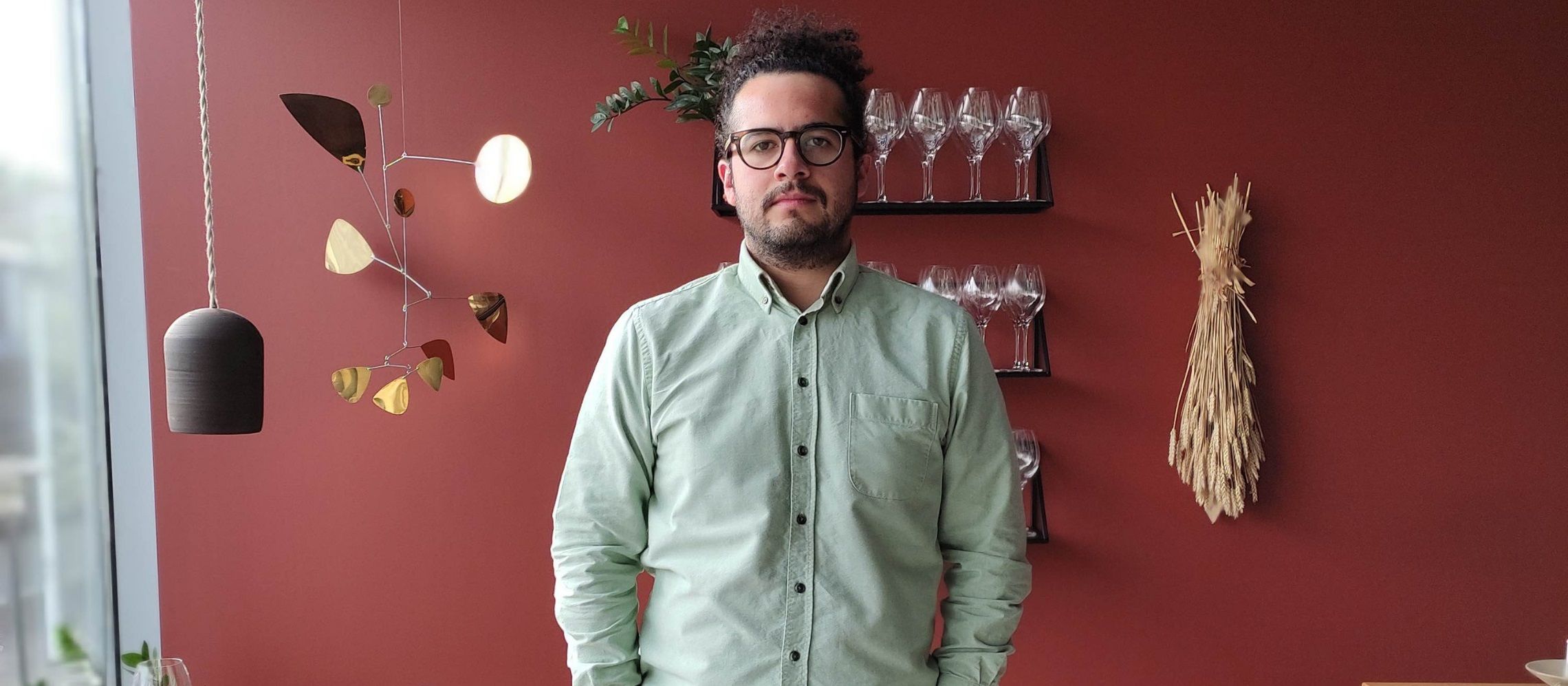Early Bird Deadline
30 November 2025
Judging
Date
23 & 24 March 2026
Winners Announcement
22 April 2026
30 November 2025
23 & 24 March 2026
22 April 2026

I went to culinary school where I took some beverage lessons, and something about wine and beer called out to me. It was used to all the aromas and flavours you find in the kitchen, but as soon as I was I started to look at wine, I felt there was a completely different world that I needed to discover.
México at the time was making a lot of noise around the world talking about food, and I had this idea of doing the same thing with wine. I thought it would be great to talk as well about what people are drinking, not only eating.

César Garduño, sommelier at Dill restaurant at Reykjavík
I decided not to look to work in big companies, but would rather find my way in smaller, local venues where I have more chance to have an influence and can introduce specific themes and specialisations. Here in Reykjavík hospitality and beverage resources are limited, and I believe it’s important we create a community where we can support each other that will help the front of house people that work here, and also increase the level of service we are able to give to our customers.
At Dill we are small team, so being part of front on house means you are involved in every step of service. The fun thing comes when we talk about the food and wine pairings. We change the menu almost every two weeks, where my main task is to find unique wines that involves working very closely with our suppliers, and making sure we have the right level of inventory in our cellars and our service is first class.
Every restaurant has its star wines, the ones that are sold because its staff love them, or because they are the ones they know the most details about. Rather than necessarily changing the wine program (which of course is important) you need to be constantly training the front of house team about the wines you have.
To make a wine program work you need to determine which wines need to come off the list or can be changed that does not effect the overall list and image of the restaurant. I would look to develop a more approachable and efficient program rather than trying to create the most extensive wine list in town.

Dill restaurant at Reykjavík
For me it's all about getting into their mind. What is their philosophy for the restaurant? What does it stand for? Where is it on sustainability? Knowing this will give me an idea about what wineries I should look to work with, whilst also making sure they pair well with the dishes on the menu.
Communication and compromise, because this is a supply chain that starts in the vineyard and ends with the customer, so the relationship of the winery through to the supplier involves a lot of information that sommeliers need to receive and they need to be willing to tell us what we need.
Every chef is always looking for the best ingredients, and sometimes for specific ones. The same happens in wine. I am always looking for certain vintages that I know would work well for us, and sometimes ask for specific labels if the supplier is already working with a winery that I know.
It’s a case of finding the right balance, so that you always have the best option available for everyone in the dining room, which takes time. However, innovation and uniqueness will take you to the next step.
Over the years low intervention wines have became more important to me, but I also understand the need to strike the right balance and be dictated to by the costumer and what they want. My wine lists are always a cross between conventional, classic styles of winemaking, and low intervention.
Charisma, discipline, respect and resilience.

César Garduño at Dill restaurant at Reykjavík
Comparing where they work to other restaurants and trying to out to do them by getting the new wine in town first.
First of all and most importantly I need to know what is happening in the winery, right through to the labour rights they offer. I have worked at a few wineries and that is really changed my point of view about which are the right ones to work with. Secondly, after a detail review of the menu, find unique pieces to fill the gaps.
The first one is empathy. We are people that need to have good relationships with a lot of people every day, and we need to know how to read them and know in a couple of minutes what they need. So being humble would be the second most important skill. We can always learn something new, the wine scene and the customers are changing all the time.
When people notice you have changed some of the labels and are willing to explore the new wines on the list and are happy to try something different and that you are the first person that suppliers send samples to of something new.
* You can find out more about Dill restaurant in Reykjavik here.
Make your wines stand out on the world stage. Enter the London Wine Competition by November 30 to secure Early Bird savings.